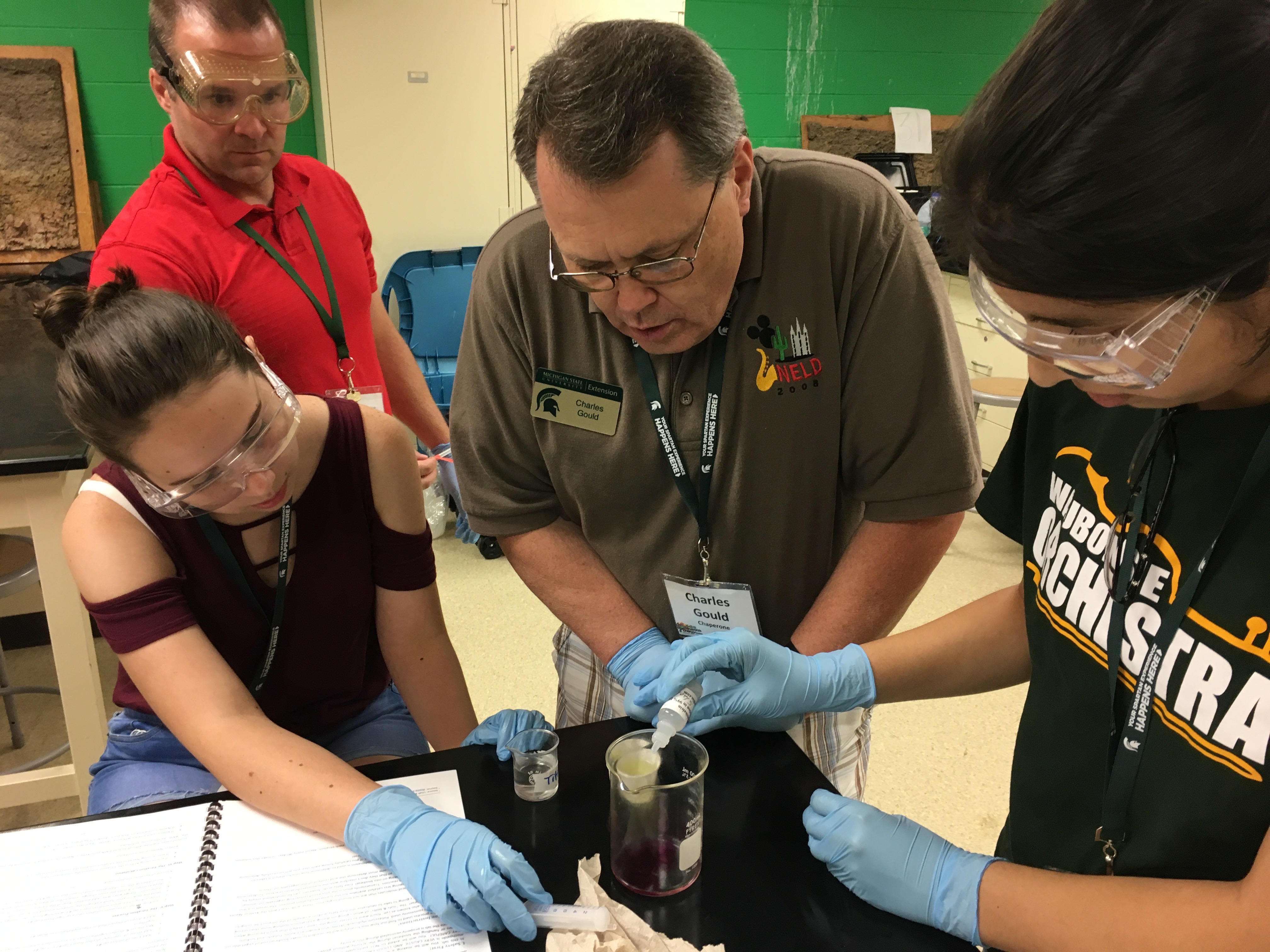Michigan 4-H Renewable Energy Camp participants explore biofuel track
Michigan 4-H Renewable Energy Camp participants gain knowledge and hands-on experience in the biofuel track as part of their camp experience.

In July 2018, the Michigan 4-H Renewable Energy Camp welcomed youth ages 13-19 years and adult participant-chaperones interested in exploring ideas, research and opportunities in biofuels and renewable, sustainable energy participated. Participants had a five-day pre-college experience with lodging at Shaw Hall on the beautiful campus of Michigan State University in East Lansing, Michigan. The camp took place on and off campus with visits to MSU professors’ laboratories, the MSU W.K. Kellogg Biological Station, Carbon Green BioEnergy, Consumers Energy Cross Winds Energy Park, farms and homes that have gone off the grid and so much more.
To expand their knowledge, participants choose one of two tracks for part of their camp time: solar/wind energy track or a biofuel track. This article will focus on the biofuel track led by Charles Gould, MSU Extension agricultural bioenergy and energy conservation educator, and Austin Krieg, 4-H resource volunteer. Safia Aladlouni and Ethan Crawford, who served as 4-H teen leaders for previous camps, provided additional leadership assistance serving as a leader for two of the three project teams.
The youth participants explored ideas and research in the field of energy as it relates to natural resources in agriculture. They learned how new bioenergy crops are produced and converted into useable energy. The most exciting learning opportunity for the youth was making their own biodiesel.
“The goal was to make biodiesel out of soybean oil, but along the way the youth learned to apply math, science and lab skills they learned in school in a fun environment,” said Gould. “As they learned about biodiesel, they became enthusiastic about making it. They learned to work together to solve problems and developed a presentation to showcase their work. In the end, only one team made true biodiesel, but the process of making it will stick with all of the youth participants. One youth told me he was going to tell his dad how to make biodiesel.”

The 12 youth participants earned two digital badges for the knowledge they gained within the biofuel track and another for renewable energy. A comment by a youth participant in the questionnaire provided asking why the knowledge they learned in this camp experienced mattered sums up the experience: “Learning how to solve problems that will need to be solved in the future.” Youth who participate in 4-H STEM (Science, Technology, Engineering, and Mathematics) are better equipped with critical life skills necessary for future success.
The 4-H Renewable Energy Camp planning committee has already started working on improvements for the 2019! Save the date currently set for July 29-Aug. 2, 2019.
Michigan State University Extension and the Michigan 4-H Youth Development program helps to create a community excited about STEM (Science, Technology, Engineering, and Mathematics). 4-H STEM programming seeks to increase science literacy, introducing youth to the experiential learning process that helps them to build problem-solving, critical-thinking and decision-making skills.
Michigan 4-H has many 4-H science programming areas for youth to explore. Science is everywhere with many questions to ask and discoveries to be made. For more information about 4-H learning opportunities and other 4-H programs contact your local MSU Extension office.



 Print
Print Email
Email

